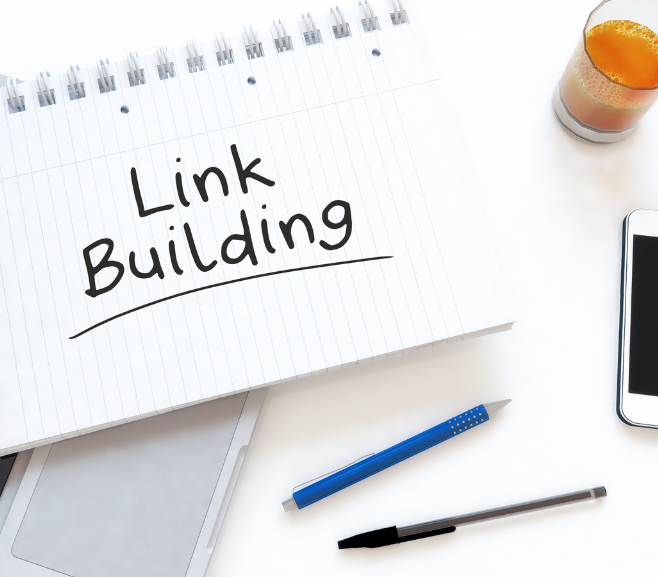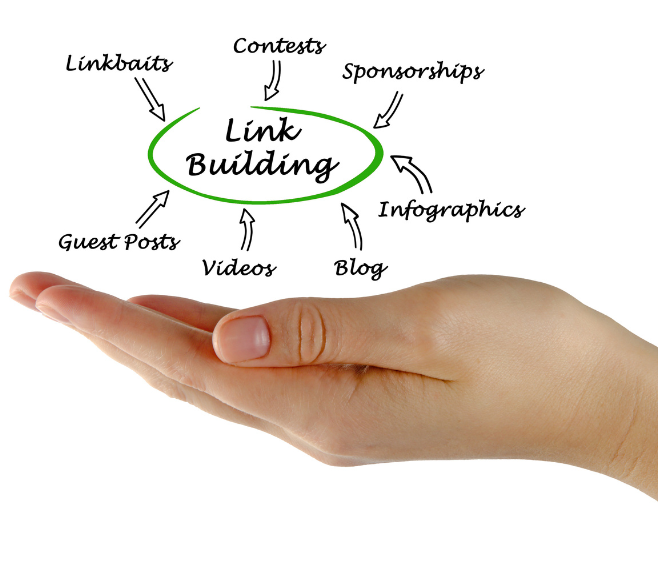In the past, link building was primarily concerned with quantity rather than quality. Today? Link building is a completely different game. If you’re developing a link-building strategy, you should be aware that it won’t be instant. It’s a gradual process—at least if done correctly. The pages where you build links, specifically their quality and authority, play a significant role in determining how high you will rank in search engine results.
Link Building Strategies: What Do They Mean?
A link building strategy is a process by which webmasters gather references from other websites that point back to their own content. One of Google’s most important ranking signals is a high backlink profile (links from other websites to one’s own content).
The more people who link to your website, the more social proof you have that it is relevant. While you can get backlinks organically by publishing high-quality content, you can also use strategies to build them on purpose.
List Of Easy Link Building Strategies
Here are the nine most effective easy link building strategies:
Create A Hub Of The Industry Trends
Creating a hub of the most relevant statistics in your industry is a great way to build quality backlinks. Stats are constantly sought after by content creators. They enjoy creating data-driven content, and they require data to back it up. It saves time for content creators to reduce research time if you can curate the stats on one page.
You are not required to own the data. Even when citing secondary sources, having a curated list of clear and to-the-point industry statistics will suffice. These posts serve as resource pages for both content creators and searchers.
Guest Posting
In order to produce quality results, guest posting for a piece of content necessitates research, time, and effort. The key is to demonstrate that you are familiar with the blog, that you care about its readers and brand, and that you have created something useful.
When you write content, you can include links to relevant websites, including your own, to drive traffic. Furthermore, because these are contextually relevant links, your own site will rank higher on Google. High-quality content necessitates high-quality links. This could take the form of blog posts, infographics, unique insights, or any other type of content.
How do you go about identifying potential guest post contributors? You can use the same method that everyone else does, which is to use Google search operators to find sites that are actively seeking guest bloggers.
Social Media Presence
Social media has revolutionised marketing, and it can be a huge help with your link-building strategy and guest-posting efforts. You’re doing your brand a disservice if you’re not active on social media.
Share new posts, images, and updates to become more active. Even if you’re new to social media, you can easily increase engagement by becoming more active. As a result, your best posts will be shared more often. This will boost your overall visibility and improve your link profile.
Adding Trustworthy And Resourceful Links
It’s time to begin utilising resource links from reputable websites. A resource is similar to a guide that you create or compile for your target market. Forbes, Entrepreneur, Huffington Post, Jeff Bullas, Social Media Examiner, and Copyblogger all have resource pages that you can use as you create yours. An industry-leading site that compiles a list of blogs will help visitors find what they’re looking for more easily.
The Broken Link Strategy
If you’re too busy to write content for your blog or a guest post, the broken link strategy might be the best option. We understand that as a busy marketer, you have a limited amount of time to write content. One of the reasons why many B2C content marketers struggle to create engaging content for their customers is this.
Finding pages on blogs with dead links (links that no longer work) and suggesting replacing the broken link with a link to similar content on your own site is a simple link building strategy. It is possible to find a number of comprehensive guides that explain the concept of broken link building and how to do it correctly the first time.
Amplify The Growth Of Your Brand
Growing your brand is one of the most effective link-building strategies. Your brand emerges from your thoughts and then begins to manifest itself in the outside world. When it comes to effective link building, keep in mind that as your personal brand grows, people will naturally link to you.
Research About Your Competitors Backlinks
Competitive analysis is the process of spying on your competitors to see what keywords they’re ranking for, where their best links are coming from, and what they’re doing now to help them succeed. By knowing where your competitors backlinks come from, you’ve already won half the battle; instead of reinventing the wheel, you can focus on sites that produce results.
Mirror Your Competitors Success
Your competitors are most likely obtaining links through outreach and networking if their links come from corporate sites. If their links come from high-value sites like Entrepreneur, Forbes, CNN, Huffington Post, and others, you should assume that a columnist or editor is involved and that this may be a paid placement.
Link Roundups
If you want the best links, you must first give them. Don’t make your posts self-serving by only linking to internal pages. Learn how to link to other relevant blog posts. Link roundups are an effective networking strategy and a great way to build links. All you have to do is compile a list of other bloggers’ blog posts.
Maintain a close eye on your current link profile and traffic. It’s possible that more blogs in your industry will link to your articles. Start with the blogs that have sent you traffic when writing your roundup posts.
Final Thoughts
When it comes to blogging, social media marketing, SEO, and any other marketing techniques you use to build links, be smart and strategic. The real challenge is earning quality, trustworthy, and natural links, not link building. That’s because it’s no longer about the number of links; it’s about the quality.




